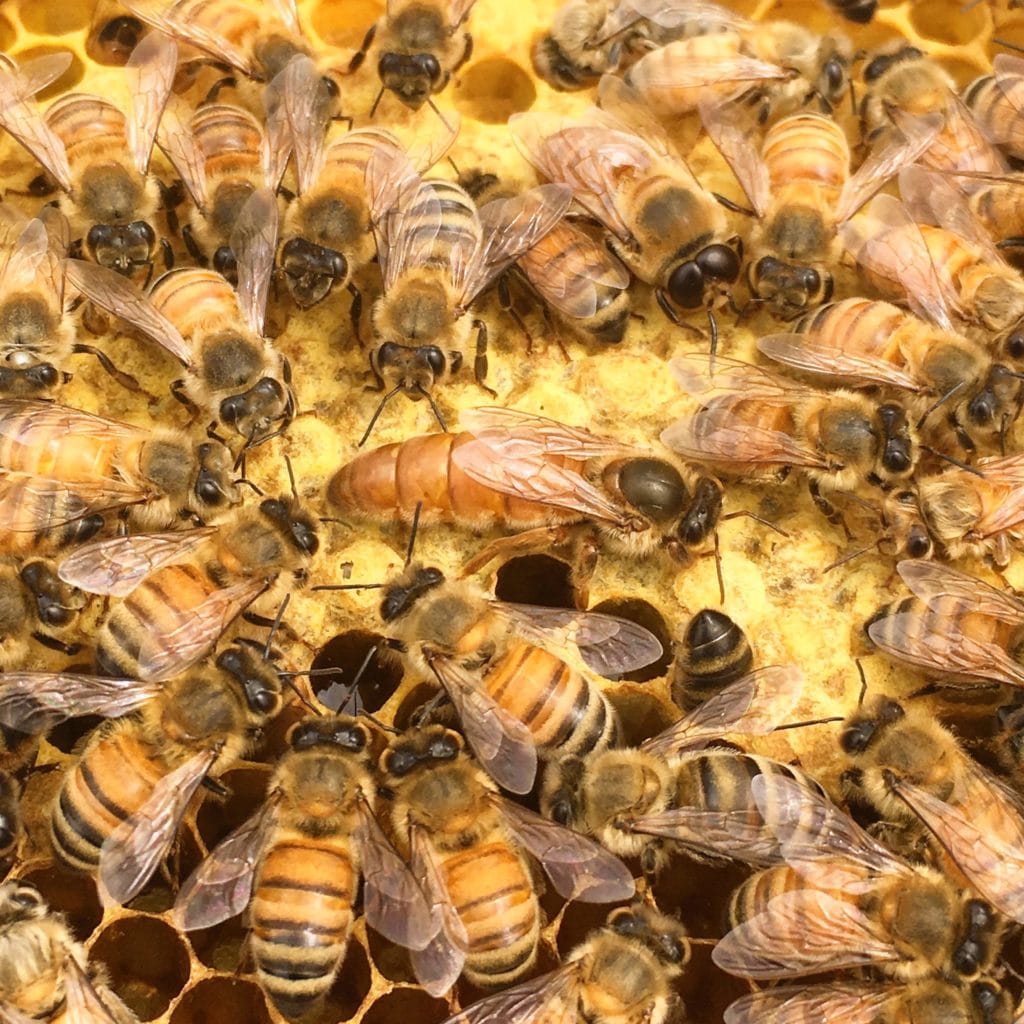“World Bee Day” was established in 2017 by the United Nations and formally made it onto the world calendar in 2018.
To celebrate the second-ever World Bee Day, we asked our team to reflect on this special occasion and share what it means to them personally. Here’s what they said:
To me, World Bee Day is a reflection of scale. The United Nations recognizes the critical importance of bees to humanity in modern times, with our entire global food system reliant on these little creatures. By uniting together in acknowledgment of bees, people around the world rise up with a message of empowerment against a modern catastrophe, jointly taking back control of our planet by together vowing to each do our part to #SavetheBees.
Noah Wilson-Rich, Beekeeper, Co-Founder, and Chief Scientific Officer
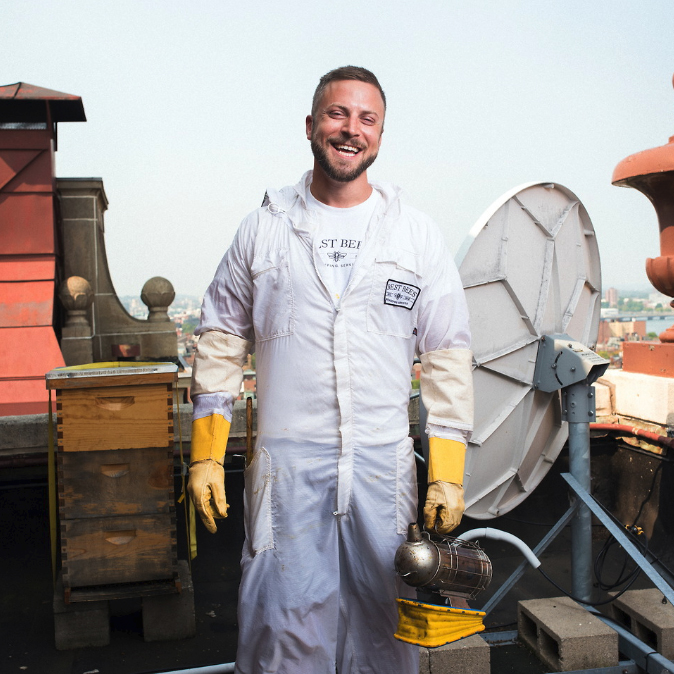
World Bee Day is a time for beekeepers to speak to their communities about the plight of the honeybee while stressing steps that everyone can take to alleviate the crisis. Grow a pollinator-friendly garden! Don’t spray toxic chemicals on your property!
I look back on past beekeeping seasons and reflect—I’ve been surprised so many times by the resilience of these incredible creatures. The world of the honeybee is endlessly fascinating, especially when you take into account the thousands of native pollinator species that we know almost nothing about.
For all of us, let’s refocus our mental and political energies on this mission to save the bees, and build a sustainable future.
Sam Schloman, Beekeeper, Regional Staff Advisor

World Bee Day means that pollinators, especially our friend the honeybee, have global importance. Everywhere on the earth where food grows, we need pollinators. They are a small but essential part of the interconnection that every living thing belongs to. It is only as strong as the weakest link, and World Bee Day is a way to recognize that we need to repair the balance between plant and pollinator before it is too late. Go Bee Day!
Nicole Voracka, San Francisco-Area Beekeeper
To me, the purpose of World Bee Day is not just to celebrate hardworking pollinators of all sizes, but it is a day that we as beekeepers need to stand together and demand more be done by world leaders to protect the health of pollinators. This is vital to our existence! The rapid decline of global pollinator health is one of the grand challenges of our time. We need to take this day, sanctioned by the UN, and fight for the collective survival of our planet and its pollinators.
Sam Jennings, Beekeeper & Sales Manager

World Bee Day means celebrating our most important pollinators and making sure people are educated on what they do for us. It is important for us to continue to study bee health, but acknowledge the accomplishments we have achieved on this day.
Chelsea Bretal, Designer
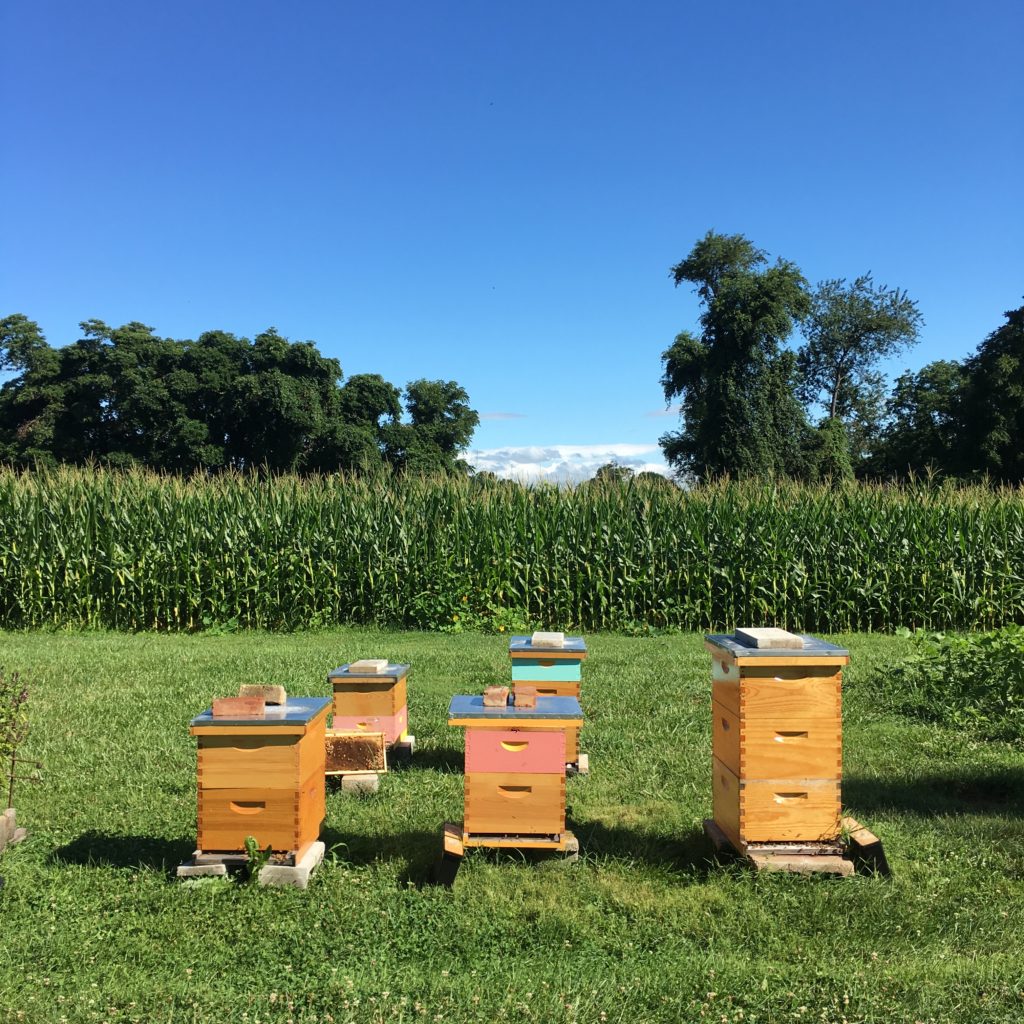
Working with bees connects me with nature. When I open up a hive I am awed at the chance to see how insects are organized to work together and communicate in ways that we don’t fully understand. I appreciate the opportunity to see this and even learn from it. We can honor World Bee Day by taking a minute to appreciate what bees and other parts of nature do. Yes, it’s for us, but also just appreciate the things that go on without our help or design. Let’s resolve to protect and encourage their existence and growth.
Tim Maendel, New York City Beekeeper
To me, World Bee Day reminds me of why we do this work. In 2018, US beekeepers reported losing almost 39% of their colonies during the year, similar to 2017. It’s a staggering number to think about. Imagine the implications if farmers yielded only 60% of their expected crops. I’m reminded that while we’re giving it all we’ve got, there is still much work to be done if we want to improve our current situation.
Sean Smith, Beekeeper and Director of Regional Operations
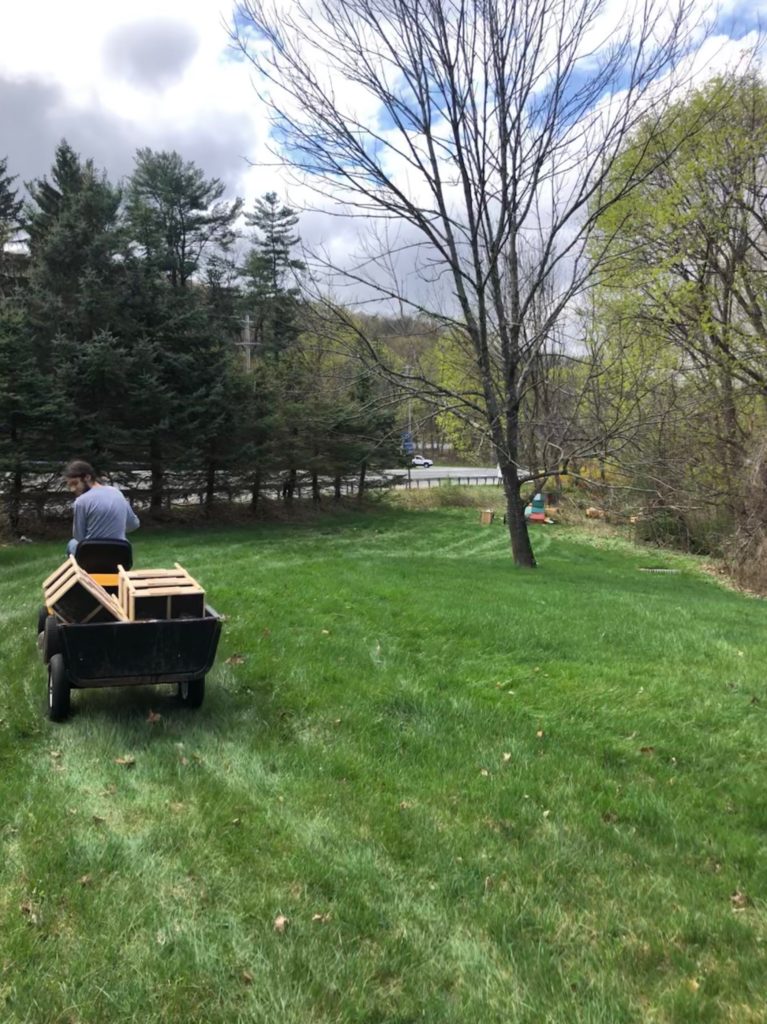
How to honor pollinators on World Bee Day? Maybe it’s a chance to pause by some flowering plants or trees in the neighborhood and see who’s around. Maybe you’ll spy a European honeybee, or a bee native to the area, or a fly or a bug you’ve never seen before. These small creatures are everywhere, living parallel lives to ours, largely outside our scope of attention yet foundational to life on earth. We humans can’t pretend we’re independent. We benefit hugely from the web of biodiversity that keeps the planet functioning in a life-supporting way. Let’s honor that role with our attention, a moment or two to tune into these other lives humming along around us.
Marcella Houghton, New York City Beekeeper
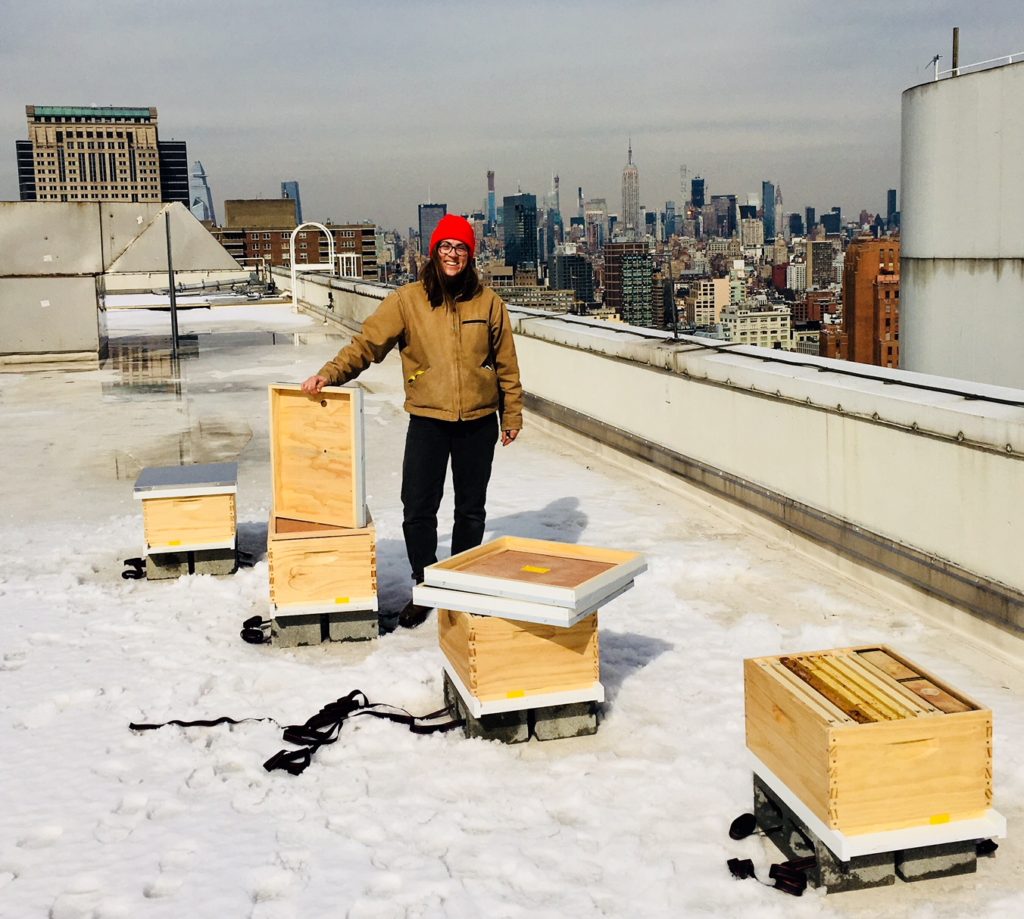
The honeybee, in my opinion, means industriousness, vitality, and hope. And recognizing pollinators as well as protecting and providing for them also means industriousness, vitality, and hope for all.
Catherine Bourgin, Washington DC-Area Beekeeper
The honeybee and bees, in general, are symbiotic with the flower and provide its basis. How can I help keep that alive?
John Munoz, Denver-Area Beekeeper
World Bee Day, to me, means there’s hope. It means people are starting to pay attention. It means the time, energy, and effort dedicated to educating and creating awareness are paying off. People are making the connection between their food and nature. Finally! As a landscape professional, I’ve seen people’s preferences trending towards organic and all natural practices not just in the organic garden but in their lawn care and outdoor living space as well.
Renee Bolivar, Horticultural Lead
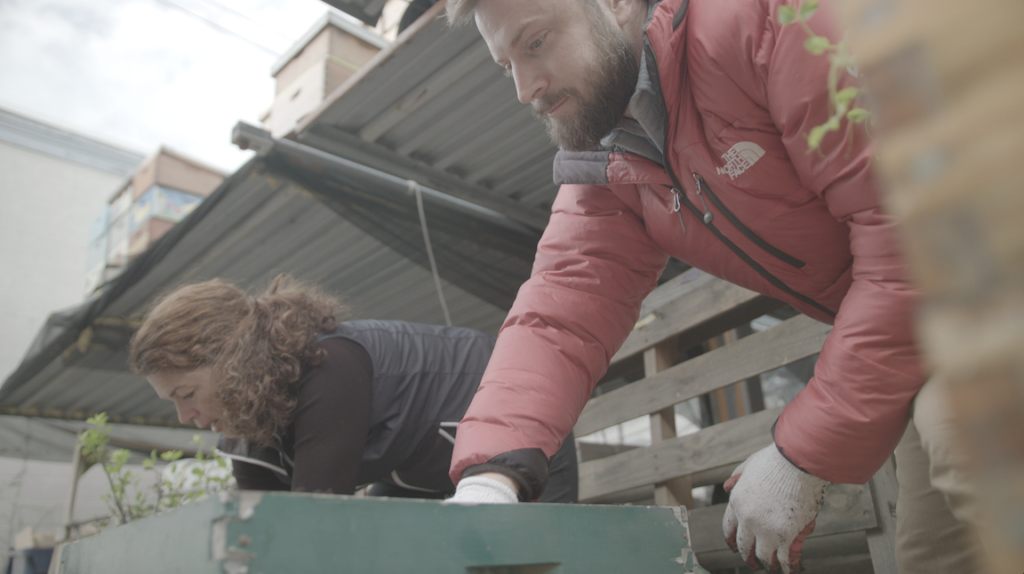
Happy World Bee Day from everyone at The Best Bees Company to beekeepers and bee-lovers around the globe!


